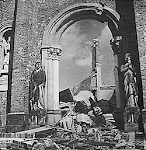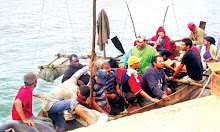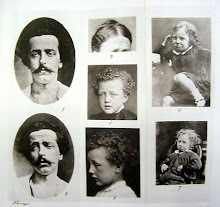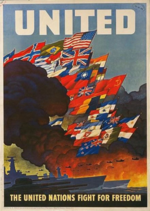One stated purpose last year's gathering was to "recognize the terrible consequences of war."
Three planes flew toward southern Japan from Tinian, an island in the west Pacific Ocean, for 6 hours on August 6, 1945. One was an instrumentation plane, one was a photographer's plane and the third was the Enola Gay, named after the group commander Colonel Tibbet's mother. On the Enola Gay was a gravity bomb named "Little Boy" armed with 130 pounds of uranium.
Japanese early alert radar had picked up the planes about an hour before the bomb fell at 8:15 in the morning, but since there were only three planes, the alert was lifted. The Japanese had decided not to intercept such small formations to save fuel.
The bomb fell nearly a minute before exploding about 1900 feet above the city. A radius of a mile was completely destroyed and a radius of four miles was burned up. The immediate death toll was 70,000 people. Estimates of the number of dead by the end of the year 1945 were 90,000 to 140,000. Within 5 years the death toll most likely reached 200,000. About 20,000 of the dead were Korean's conscripted into forced labor in Japan. There were also prisoners of war.
Legal challenges to the bombing have largely been based on the targeting of civilians, most of the people killed in Hiroshima. Treaties from the Hague beginning in the early 20th Century attempted to limit civilian deaths.
Aerial bombing was considered so horrific it was banned even before it was invented. The Hague Convention of 1899 stated: "The Contracting Powers agree to prohibit, for a term of five years, the launching of projectiles and explosives from balloons, or by other new methods of a similar nature."
In 1923 a Draft Treaty on Aerial Bombardment was supported by the United States including the following language:
Now this language seems old-fashioned. We are accustomed to aerial bombardment of civilians. But the early treaties and conventions largely reflected a convention that there could be no moral justification for bombing civilians.
The bombardment of cities, towns, villages, dwellings or buildings not in the immediate neighborhood of the operations of land forces is prohibited. In cases where [military targets] are so situated, that they cannot be bombarded without the indiscriminate bombardment of the civilian population, the aircraft must abstain from bombardment.
Bomber pilots seem to sometimes wind up being those most eloquently opposed to war: Joseph Heller, Howard Zinn, and George McGovern, for instance. Kurt Vonnegut had the vantage point of being a prisoner of war in Dresden when it was firebombed by the Allies.
Even with the new, supposed precision bombing, civilians are overwhelming the victims in modern warfare. A group called iraqbodycount.org has measured civilian deaths in Iraq since early 2003. These are only civilians; deaths in combat are not counted. Today's numbers are 83,221-90,782.


























_-_Dante_And_Virgil_In_Hell_(1850).jpg)























































4 comments:
Mr. Stapleton
Solace Payment. It's real, it works, it's the law, and it comforts the soul at a national level.
Thanks to all our lawyers in this nation, we can redeem any crime into any common equation that fits square pegs into round holes.
ML
Mr.Stapleton
One comment that even I understand concerning the death penalty and Hiroshima.
An Eye for an eye.
The Japanese sided and participated in genocide.
WWJD
WWJD,
Naking?
Golden Lilly?
Colusion with Nazi Germany?
To which do you refer?
Kurgan
Mr Stapleton,
One of your commentors recently offered me this advice:
mj,
If you count on "history and headlines", your not living in the real world my friend.
ml
April 27, 2008 10:24 PM
So now I'm confused. Is it historical fact that validates an opinion or opinion that validates the history?
MJ
Post a Comment